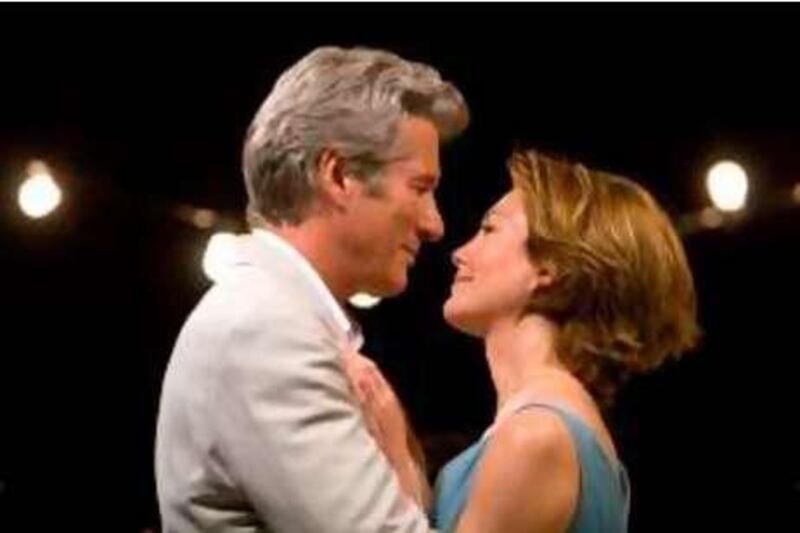The novels of the bestselling author Nicolas Sparks have already made three successful big-screen adaptations, and anyone who has seen Message in a Bottle, A Walk to Remember or The Notebook will know that he specialises in sentimental romances. This is also the third pairing of Diane Lane and Richard Gere. While they mesmerised in The Cotton Club and Lane won an Oscar for Unfaithful, here they seem happy just to churn out romantic clichés about love and happiness. Unlike those movies, this is adaptation by numbers and thus lacks warmth. It is presided over by one of the great theatre directors of our time, George C Wolfe, the same man who helmed the award-winning Angels In America. Wolfe's experience with a motion-picture camera has, thus far, been limited to television. Unfortunately, it shows. As well as a creaky plot and plodding romance, Nights in Rodanthe has some strange edits, and the unhappily married mother Lane and the estranged father Gere are so badly directed that most of the time you just want to laugh at the wooden dialogue and delivery.
Nights in Rodanthe
This is adaptation by numbers, strangely presided over by one of the great theatre directors of our time.

Editor's picks
More from The National





